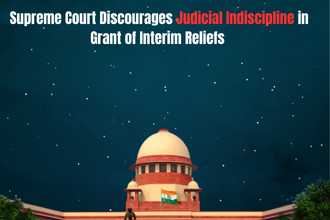In a significant development impacting access to justice in Kerala, the Kerala High Court has directed the State government to produce data and material relied upon for its recent decision to substantially hike court fees. The move comes amid growing concerns raised by the Kerala High Court Advocates’ Association (KHCAA), which filed a Public Interest Litigation (PIL) challenging the decision on grounds of arbitrariness and unconstitutionality.
Background: Exorbitant Hike in Court Fees in Kerala
On April 1, 2025, the Kerala Finance Bill, 2025 came into force, effecting substantial amendments to the Kerala Court Fees and Suits Valuation Act, 1959. The amendments triggered sharp increases in court fees, ranging from 400% to 9,900%, sparking widespread outrage among the legal fraternity.
The Kerala High Court Advocates’ Association (KHCAA) responded by filing a PIL—KHCAA v. State of Kerala & Ors.—arguing that the hikes are exorbitant, arbitrary, and violate constitutional rights. The PIL, filed on April 7, 2025, was heard by a Division Bench comprising Chief Justice Nitin M Jamdar and Justice S Manu.
Court’s Stand: State Must Justify Fee Hike with Data
While refusing to stay the implementation of the fee hike without hearing the State and other respondents, the Bench firmly directed the Kerala Additional Advocate General (AAG) Ashok M Cherian to ensure that a counter affidavit is filed by the State, accompanied by all relevant material, data, and stakeholder recommendations used to justify the decision.
The AAG suggested submitting the material in a sealed cover, a proposal strongly opposed by KHCAA President Yeshwant Shenoy, who argued against secrecy in a matter involving public access to justice. “This is about court fees, what is this secrecy? Even if you give it to me in a sealed cover, I will release it to the public,” Shenoy stated.
Chief Justice Jamdar clarified that the Court was not directing sealed cover submissions, reinforcing the importance of transparency.
Concerns Raised in the PIL
KHCAA’s petition lays down several fundamental objections to the fee hike:
1. Arbitrary and Unreasonable Fee Hike
The association pointed out that the increase—up to 9,900% in certain cases—is not only unprecedented but unreasonable and lacking in proportionality. Such steep hikes, especially in matters like compensation for crime victims, could deter access to justice, violating constitutional guarantees under Article 14 and Article 21.
2. Absence of Data and Stakeholder Consultation
Despite claims by the State Finance Minister that the hike was necessary due to inflation, infrastructure improvements, and welfare funding for advocates and clerks, no underlying data or reports were made public. The KHCAA alleges that the State failed to consult stakeholders or publish any recommendations or justifications, rendering the move opaque.
3. Violation of Supreme Court Precedents
KHCAA argued that the imposition of ad valorem court fees—fees based on the value of the subject matter—without any upper limit is in direct contradiction with Supreme Court rulings, which emphasize that access to justice cannot be priced beyond reach.
4. Discriminatory Exemption for State
Section 73-A of the amended Act, which exempts the State and its functionaries from paying court fees, was also challenged. The petition contends that granting blanket exemption to the largest litigant in the State is discriminatory and unconstitutional, creating an unequal playing field for private litigants.
5. Ignoring Law Commission Recommendations
KHCAA accused the State of acting in contradiction to the recommendations of both the Law Commission of India and the Kerala Law Reform Commission, which have emphasized the need for rational, evidence-backed fee structures that ensure access to justice.
Previous Efforts and Government Committees
Interestingly, the State government had in 2024 appointed a five-member Committee led by retired High Court judge Justice VK Mohanan to study the issue of court fee revision. However, no report or recommendation from this Committee has been made public. The secrecy surrounding this report further fuels doubts over the legitimacy of the government’s action.
Wider Implications of the Court Fee Hike
The revised fee structure could significantly impact middle and lower-income litigants, NGOs, and even victims of crimes seeking compensation through courts. The fear is that these hikes could deter rightful claims, especially in civil suits, land disputes, family matters, and consumer cases.
Legal experts warn that such barriers go against the fundamental rule of law, especially when no ceiling is placed on ad valorem fees. This effectively allows the State to profit from litigation, a concern that KHCAA passionately highlighted in its submissions.
Legal Fraternity Joins Hands
The PIL has been supported by a team of advocates including Shinto Mathew Abraham, Arun Thomas, Karthika Maria, Veena Raveendran, Anil Sebastian Pulickel, Mathew Nevin Thomas, Kurian Antony Mathew, Leah Rachel Ninan, Karthik Rajagopal, among others. Their united stand signals a broader legal resistance to the government’s unilateral actions.
What’s Next?
With the Court directing the State to file a detailed counter affidavit with all relevant data and documents, the spotlight is now on the transparency and justification behind the policy decision. The matter is likely to be closely watched not just in Kerala but across India, as it touches upon larger issues of judicial access, transparency, and fair governance.
The final outcome of this PIL could set a significant precedent on fee structures, State exemptions, and the right to access the judiciary without prohibitive costs.
Conclusion
The Kerala High Court’s direction to the State to justify its court fee hike marks a crucial moment in the fight to preserve affordable and equitable access to justice. With legal associations stepping up and the judiciary demanding transparency, this case could redefine the limits of fiscal policy in the judicial domain. The coming weeks will reveal whether the State can provide the rationale required to uphold such sweeping changes—or if the Court will intervene to protect the common litigant.


